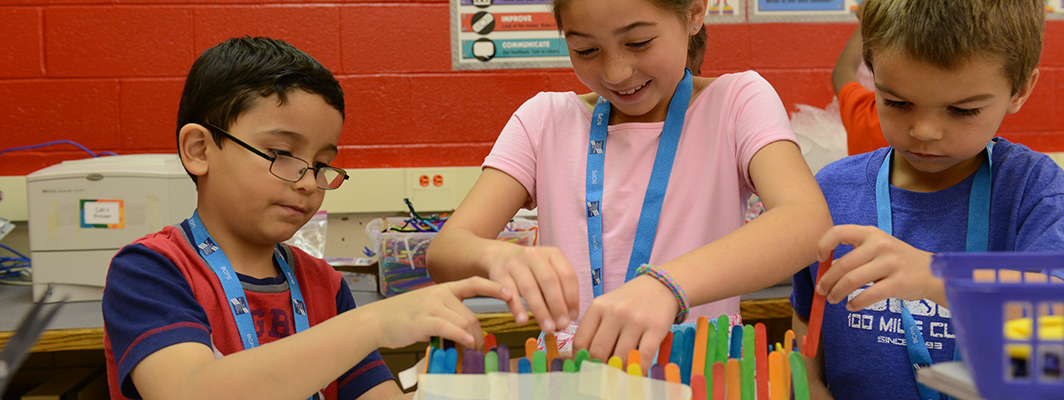
Dr. Kylie Peppler, Associate Professor of Learning Sciences and Director of the Creativity Labs at Indiana University Bloomington, led the first webinar. Dr. Peppler’s discussion connected specific findings in her research to actionable steps that educators can take in their practice. For example, Dr. Peppler described the relationship between fashion and engineering, pointing out that sewing activities in maker-centered learning environments can lead to improved confidence and performance in multiple areas, including math, electronics, and spatial reasoning. Liz Loether, of Cajon Valley Union School District in California, found Dr. Peppler’s webinar to be both useful and timely, saying, “We are building many makerspaces with our district. [I] love the ideas that were shared.”
Dr. Peppler also discussed some of the challenges superintendents are facing as they integrate maker-centered learning in their districts. Interdisciplinary learning can be, as she described it, a “riddle”: it is alluring and at the same time hard to justify in schools that place a high premium on discipline-specific content knowledge. In response to the challenge of showing the impact of maker-centered learning programs, Dr. Peppler discussed her ongoing work to develop tools and rubrics for documenting and assessing learning in these environments.
Aileen Owens, from South Fayette Township School District in Pennsylvania, was enthusiastic about Dr. Peppler’s research: “We are currently working on how to assess computational thinking and maker activities and she addressed this beautifully. She gave great insight into using digital portfolios and reflective journaling and helped move my thinking in new ways.”
In our upcoming blog posts on this webinar series, we will share insights and video archives on topics like “maker empowerment,” a key finding of Harvard’s Agency by Design research project, and recommendations for creating equitable maker learning programs.